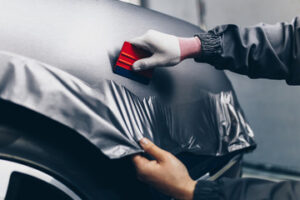Hair Salons San Francisco provide a variety of beauty and rejuvenation services. They can be a relaxing experience and boost self-confidence. They also offer personalized advice and help people keep up with new trends in hair fashion.

Reputed salons have a strong clientele base that can lead to repeat business and referrals, ensuring job security. They also host events and fashion shows, allowing stylists to network with other professionals in the industry.
Salons depend on their customers to stay in business, and happy clients can lead to referrals. But a great hair cut is just part of the experience; client satisfaction also comes from exceptional customer service, which starts with a warm greeting. When clients walk into a salon, they want to feel welcomed and valued, and it is the salon staff’s job to make them feel that way. From the start, this can be achieved by making sure the salon is clean and well-decorated, offering complimentary drinks and magazines, and being open to questions and concerns.
Exceptional customer service also means providing a variety of services that suit each client’s unique needs, and this can be accomplished by having a knowledgeable and experienced team and ensuring that all of your staff members are familiar with the latest techniques and products. Additionally, it’s important to encourage your staff to take a proactive approach to customer service by asking for feedback and using it to improve their performance.
In addition, it’s a good idea to implement search engine optimization strategies and encourage clients to leave reviews of their experiences at your salon. This will help expand your reach and increase the likelihood of new clients finding you online.
It is also important to establish a strong brand identity and emphasize the unique aspects of your salon that set it apart from competitors. Whether it’s your expertise in a particular technique, your use of eco-friendly products, or your exceptional customer service, establishing a unique identity will attract a client base that aligns with your values and style, fostering loyalty and word-of-mouth referrals that can contribute to your growth.
In addition, it’s a good practice to create a formal system for dealing with complaints and compliments, and ensure that all employees are familiar with it. This will ensure that your salon’s policies are understood and respected, and that they aren’t ignored or passed off as a joke. Finally, it’s a good idea to display your salon’s rules visibly in the salon and on your website, and to communicate them clearly to both staff and clients.
A Warm Atmosphere
A warm and welcoming atmosphere is a major factor in why so many women love visiting hair salons. The stylists in these establishments are not only experts when it comes to hair styling, but they also know how a great haircut can affect your self-esteem and mood. This is why they work hard to create a warm and comfortable environment for their clients.
As a result, they often provide customers with a relaxing and pleasant experience while providing the best hairstyle they can give them. Whether they are looking to get a quick trim or want their hair done for a special event, these salons strive to give them the perfect look that will make them feel confident and happy.
Another reason why people enjoy going to hair salons is because of the community that they build with their stylists and other salon professionals. Many women develop friendships and relationships with the people they see in their hair salons, and these friends become important parts of their lives. The salon community also provides a supportive place for women to talk about their lives and problems, helping them to relax and unwind.
Local hair salons tend to hire the best talent from around their area. These are highly skilled hairstylists that can cut and style both men’s and women’s hair. Many have years of experience under their belts and can offer a variety of cuts for both short and long hair. They are able to take your ideas and make them a reality through their expert skill and expertise.
Hair Salons sell a variety of beauty products for their clients, such as shampoos, conditioners, styling gels and sprays, hair coloring and highlighting products, and hair texture treatments. They usually have a good selection of products and are able to offer their customers competitive prices. Some salons even offer discount packages for their clients.
Most of the salons have a good return policy for their beauty products, but some do not. This is because they have to keep track of the inventory and ensure that the products are not stolen or used. They may also have to pay use tax for certain chemicals, such as formaldehyde, that are used in the beauty industry and have been the subject of occupational hazard studies.
A Strong Clientele Base
When a client walks into your salon, they should feel welcomed and valued. A staff that treats each guest as an individual and provides exceptional customer service can turn a one-time client into a regular customer. In addition, making sure that your salon’s branding reflects the kind of clients you want to attract will help ensure that potential customers find you easily.
A good website is another essential tool for salons. It should clearly lay out the basics, like pricing, opening times, and how to book an appointment. A website that looks professional and is easy to navigate will make a great impression on new customers and help them feel confident in your business.
Once a new client has booked an appointment, a personalized follow-up email will remind them about their next visit and build loyalty. Providing tips on styling their hair between appointments or sending them a discount offer will show that you value them and are invested in their happiness. Creating an online survey or suggestion box will also allow you to analyze customer feedback and implement changes that will benefit both your staff and your customers.
Amenities can be simple or elaborate, but they should enhance the salon experience for your customers. Providing things like infused water, free blow-drys after a haircut, or a selfie station can make your salon stand out from others and make clients more likely to return. It’s also important to make it easy for clients to book their next appointment before they leave the salon. This can be done with an online booking system like Belliata, which makes it easy for clients to book and manage their appointments on their own.
Partnering with influencers in the beauty industry is a great way to build brand awareness and gain new clientele. Choose influencers with a similar audience to yours and who share your salon’s values. Using social media to highlight the collaboration can also create an engaged community and increase the reach of your brand.
Being featured in a local newspaper is another effective marketing technique that will give your salon a boost and grow your clientele base. It will not only bring in a new wave of clients, but it will also help to establish your business as an authority in the beauty industry.
A Strong Brand
A strong brand is one of the most important aspects of a salon. It communicates what your salon stands for, makes people remember it, and helps potential customers understand if it is the right fit. However, it can be challenging to define your brand and find a voice that resonates with clients. This is especially true for salons that rely on word of mouth and social media for marketing.
One way to build a strong brand is by using catchy slogans. The slogan should be short and memorable, and it should reflect the qualities that set your salon apart. It should also be a good idea to create a logo that complements the catchy slogan and reinforces your salon’s brand identity.
Another effective way to promote your salon is by providing free products or treatments. This strategy can boost your salon’s revenue and improve customer satisfaction. However, it’s important to carefully plan your promotions to avoid putting too much pressure on your staff or damaging the reputation of your business.
It’s also crucial to build trust and credibility by leveraging the power of online reviews and testimonials. These tools can help you drive more traffic to your website and attract new clients. However, it’s important to choose influencers who are aligned with your salon’s values and target audience.
Lastly, it’s critical to keep track of your salon’s sales and performance to make informed decisions about future growth. By tracking key performance indicators (KPIs), you can assess your salon’s strengths and weaknesses, identify opportunities for improvement, and develop a marketing strategy to meet your goals.
Running a hair salon is a demanding task that requires constant attention and innovation. Despite the challenges, a well-established salon can stand out from the competition and attract clientele eager for a unique experience. By following these tips, you can build a strong brand that offers quality services and makes a lasting impression on your clients. With the right salon management software, you can streamline your workflow and focus on increasing revenue.

